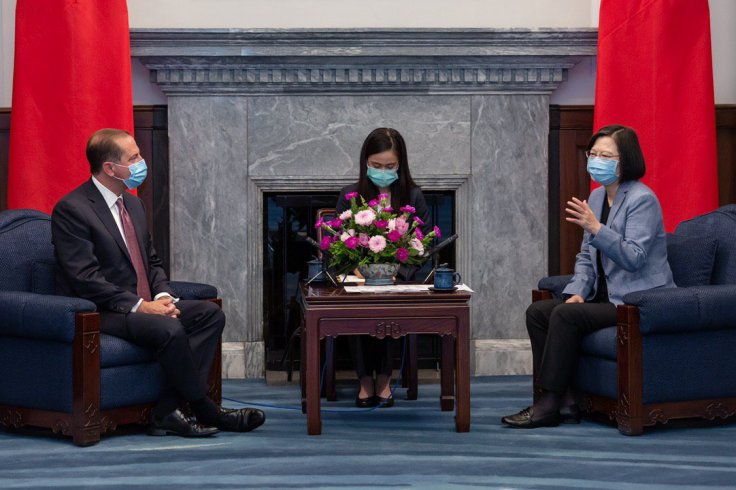Taiwanese President Tsai Ing-wen said Taiwan will play key role in creating regional and international order to counter the increasing Chinese aggression against democratic states. The strongly worded statement from the Taiwanese leader came on the country's National Day.
"For some time we have all been paying close attention to changes in regional security. From sovereignty disputes in the South and East China Seas and the China-India border conflict to developments in the Taiwan Strait, as well as Hong Kong version of the National Security Law' that has garnered international concern, it is clear that democracy, peace and prosperity in the Indo-Pacific are currently facing serious challenges," President Tsai said.

Tsai said that countries in this region have forged an alliances to make sure their national security and democratic systems are not affected by China's aggression.
"We must turn this testing time into a historical opportunity. Our commitment to our sovereignty and democratic values will not change, but we will also maintain strategic flexibility and be responsive to changes. As circumstances change, advance preparation is the only way to exercise control over the future, and not just drift with the current or have others decide our fate," Tsai said, IANS reported.
'We will Forge Alliances'
"We will forge alliances based on shared values and friendly ties throughout the international community, and continue to enhance partnerships with like-minded and friendly nations. We will also participate more actively in regional and international multilateral cooperation and dialogues," she added.
More From IANS:
The most important values the Republic of China (Taiwan) stands for in the region are upholding peace and promoting economic development.
"We want to be an advocate for the forces of good, and share our progressive and good faith values with the whole world," she said.
Without mentioning Xi Jinping's name, President Tsai said that "as countries in the region and around the world are now concerned about China's expanding hegemony", she hoped that the publicly stated video message of "the leader across the Strait" to the UN General Assembly that "China will never seek hegemony, expansion, or a sphere of influence", is the beginning of genuine change.
"At this critical time when the entire world has grave concerns about Indo-Pacific and cross-strait developments, if Beijing can heed Taiwan's voice, change the way it handles cross-strait relations, and jointly facilitate cross-strait reconciliation and peaceful dialogue, I believe that regional tension can surely be resolved," she said.

In addressing cross-strait relations, Taiwan, she said, will not act rashly, and will uphold its principles.
Maintaining stability in cross-strait relations is in the best interests of both sides, she said.
"We are committed to upholding cross-strait stability, but this is not something Taiwan can shoulder alone; it is the joint responsibility of both sides."
At this stage, the most pressing cross-strait issue is to discuss how we can live in peace and coexist based on mutual respect, goodwill and understanding, the President said.
"As long as the Beijing authorities are willing to resolve antagonisms and improve cross-strait relations, while parity and dignity are maintained, we are willing to work together to facilitate meaningful dialogue. This is what the people of Taiwan advocate, and it is a cross-party consensus," she reiterated.









